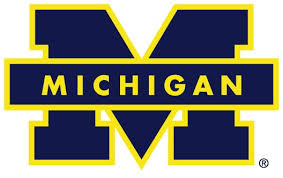What Do Social Movements Do?
20th Annual Charles F. Fraker Conference
Romance Languages and Literatures at the University of Michigan
Deadline for Abstracts: February 2nd, 2015
Conference Dates: March 13-14th, 2015
Conference Location: Ann Arbor, Michigan
From the conference organizers:
Social movements refashion the nature of the human bond with the purpose of disrupting or preserving a given order. The last world financial crisis triggered major changes within social structures and a surge in social movements. These movements include the occupiers on Wall Street and the Tea Party in the United States, 15-M and Podemos in Spain, the Geração à rasca in Portugal, student movements in Chile, Mexico and other Latin American countries, the Arab Spring, the Front National in France, or the Movimento Cinque Stelle in Italy. More recently, incidents in Ferguson, New York, and Guerrero, Mexico have brought citizens into the streets to protest state complicity in violence. The key role these and other groups play in current politics urges us to reflect on the ways they do or undo social organization today and how they have worked in the past.
Considering the plethora of aims, expectations, and strategies devised by social movements throughout history, we would like to open the following questions to discussion: What do social movements do? How do social movements work? What is their scope? Did social movements work the same way in the past as they do today? How do they modify traditional politics? What is the importance of group leaders in relation to horizontal politics? How do they communicate? Who speaks? Who listens? Ultimately, how do social movements work to remake the human bond?
Keynote speakers, Professor John Holloway (Universidad Autónoma de Puebla, Mexico) and Professor Joan Copjec (Brown University), will present recent work examining contemporary social movements. To complement these lectures, we have invited representatives from various movements within the United States to participate in a roundtable discussion during the conference and arranged an exhibition of visual art produced by social movements and art-activist collectives internationally.
We solicit presentations that explain the many possible trajectories that social movements trace as represented in literature, film, music, performance and/or relevant socio-historical and cultural phenomena.
Submission Instructions: presentations of 20 minutes may be given in English, French, Italian, Portuguese, or Spanish. We welcome papers that deal with Francophone, Latino-Hispanic, Lusophone, or Italian cultures, as well as those that address communities outside these linguistic, geographical, and disciplinary designations. We also welcome essays that study any historical period, from the Middle Ages to the present. Please send a 250-300 word abstract and refer questions to the Organizing Committee Email at: [email protected].
Full call for papers here: Cfp_Fraker_2015
Tags: CFP, Conferences, University of Michigan


